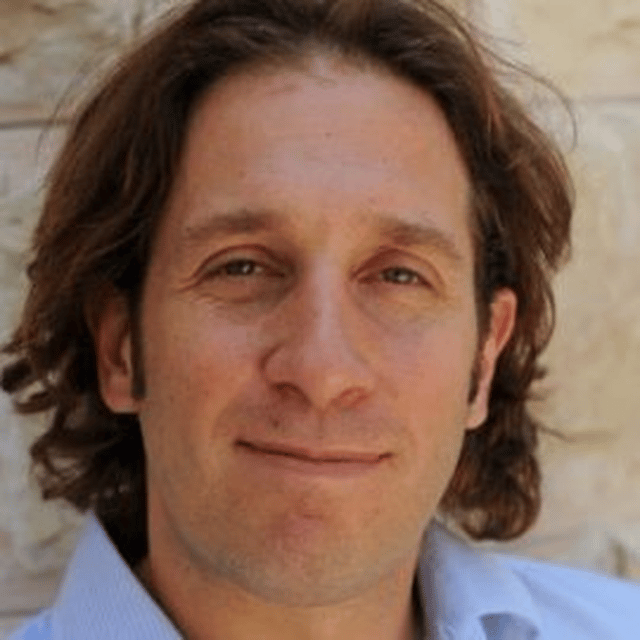Jeremy Bailenson

Jeremy Bailenson
Jeremy Bailenson is a Courtesy Professor of Education, in Stanford University.
Virtual reality is now reality – for businesses and society.
Jeremy Bailenson, a pioneering expert in the field, is helping navigate today’s virtual reality storm while examining where radical new developments in the digital technology will lead us in the next 5, 50 and even 500 years.
Professional Education
He obtained his Bachelor of Arts, University of Michigan, Cognitive Science (1994) .
He obtained his Master of Science, Cognitive Psychology, Northwestern University (1996). He obtained his Doctor of Philosophy, Northwestern University, Cognitive Psychology (1999).
Administrative Appointments
He is Senior Fellow, Woods Institute for the Environment, Stanford University (2013 - Present)
Recent Publications
Bailey, J. O., Bailenson, J. N., Obradović, J., & Aguiar, N. R. (2019).
Virtual reality’s effect on children’s inhibitory control, social compliance, and sharing.
Journal of Applied Developmental Psychology, 64.
Jarrold, W., Mundy, P., Gwaltney, M., Bailenson, J., Hatt, N., McIntyre, N., … Swain, L. (2013).
Social Attention in a Virtual Public Speaking Task in Higher Functioning Children With Autism.
AUTISM RESEARCH, 6(5), 393–410.
Alonso, M. B., Keyson, D. V., Jabon, M. E., Hummels, C. C. M., Hekkert, P. P. M., & Bailenson, J. N. (2013).
Post-error expression of speed and force while performing a simple, monotonous task with a haptic pen.
BEHAVIOUR & INFORMATION TECHNOLOGY, 32(8), 778–782.
Biography
Jeremy Bailenson is founding director of Stanford University’s Virtual Human Interaction Lab, Thomas More Storke Professor in the Department of Communication, Professor (by courtesy) of Education, Professor (by courtesy) Program in Symbolic Systems, a Senior Fellow at the Woods Institute for the Environment, and a Faculty Leader at Stanford’s Center for Longevity.
He earned a B.A. cum laude from the University of Michigan in 1994 and a Ph.D. in cognitive psychology from Northwestern University in 1999.
He spent four years at the University of California, Santa Barbara as a Post-Doctoral Fellow and then an Assistant Research Professor.
Bailenson studies the psychology of Virtual and Augmented Reality, in particular how virtual experiences lead to changes in perceptions of self and others.
His lab builds and studies systems that allow people to meet in virtual space, and explores the changes in the nature of social interaction.
His most recent research focuses on how virtual experiences can transform education, environmental conservation, empathy, and health.
He is the recipient of the Dean’s Award for Distinguished Teaching at Stanford.
He has published more than 100 academic papers, in interdisciplinary journals such as Science, the Journal of the American Medical Association, and PLoS One, as well domain-specific journals in the fields of communication, computer science, education, environmental science, law, marketing, medicine, political science, and psychology.
His work has been continuously funded by the National Science Foundation for 15 years.
Bailenson consults pro bono on Virtual Reality policy for government agencies including the State Department, the US Senate, Congress, the California Supreme Court, the Federal Communication Committee, the U.S.
Army, Navy, and Air Force, the Department of Defense, the Department of Energy, the National Research Council, and the National Institutes of Health.
His first book Infinite Reality, co-authored with Jim Blascovich, was quoted by the U.S.
Supreme Court outlining the effects of immersive media.
His new book, Experience on Demand, was reviewed by The New York Times, The Wall Street Journal, The Washington Post, Nature, and The Times of London, and was an Amazon Best-seller.
He has written opinion pieces for The Washington Post, CNN, PBS NewsHour, Wired, National Geographic, Slate, The San Francisco Chronicle, and The Chronicle of Higher Education, and has produced or directed five Virtual Reality documentary experiences which were official selections at the Tribeca Film Festival.
His lab’s research has exhibited publicly at museums and aquariums, including a permanent installation at the San Jose Tech Museum.



